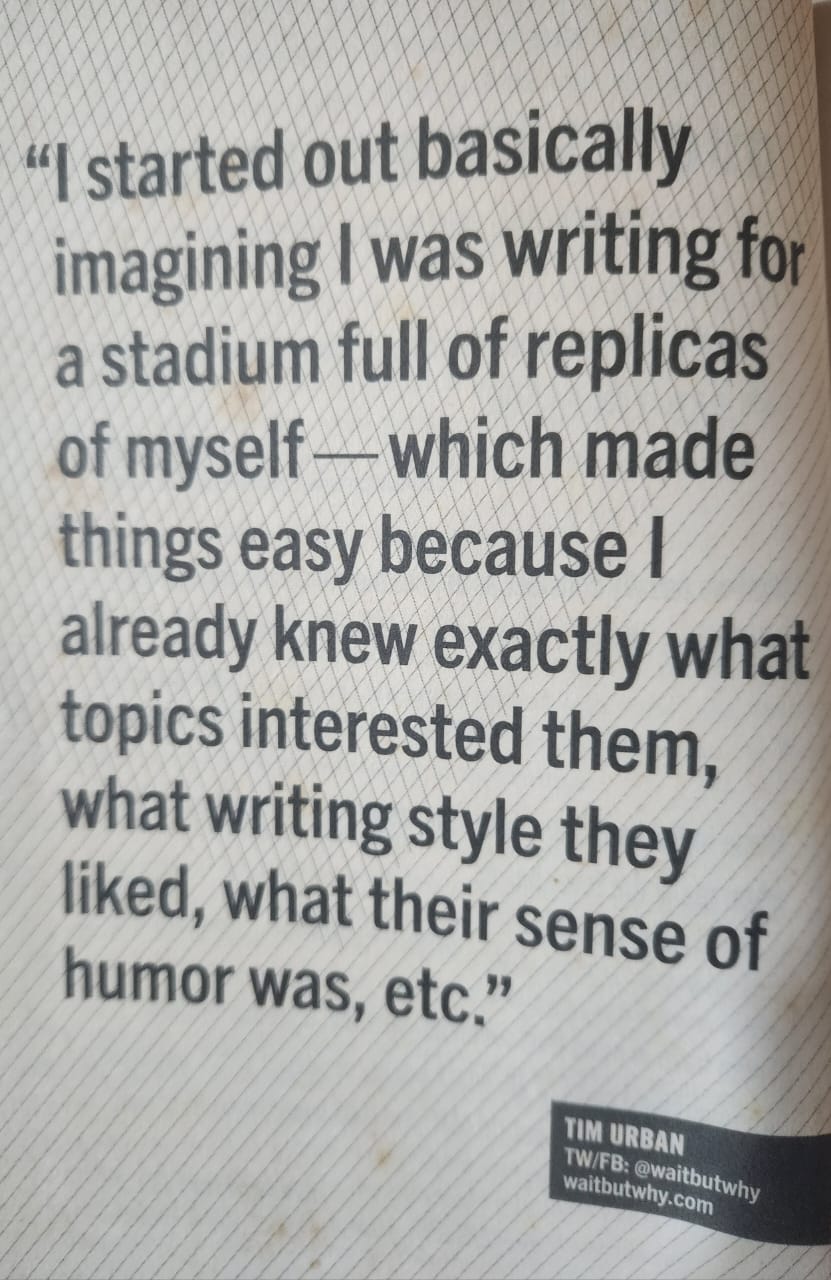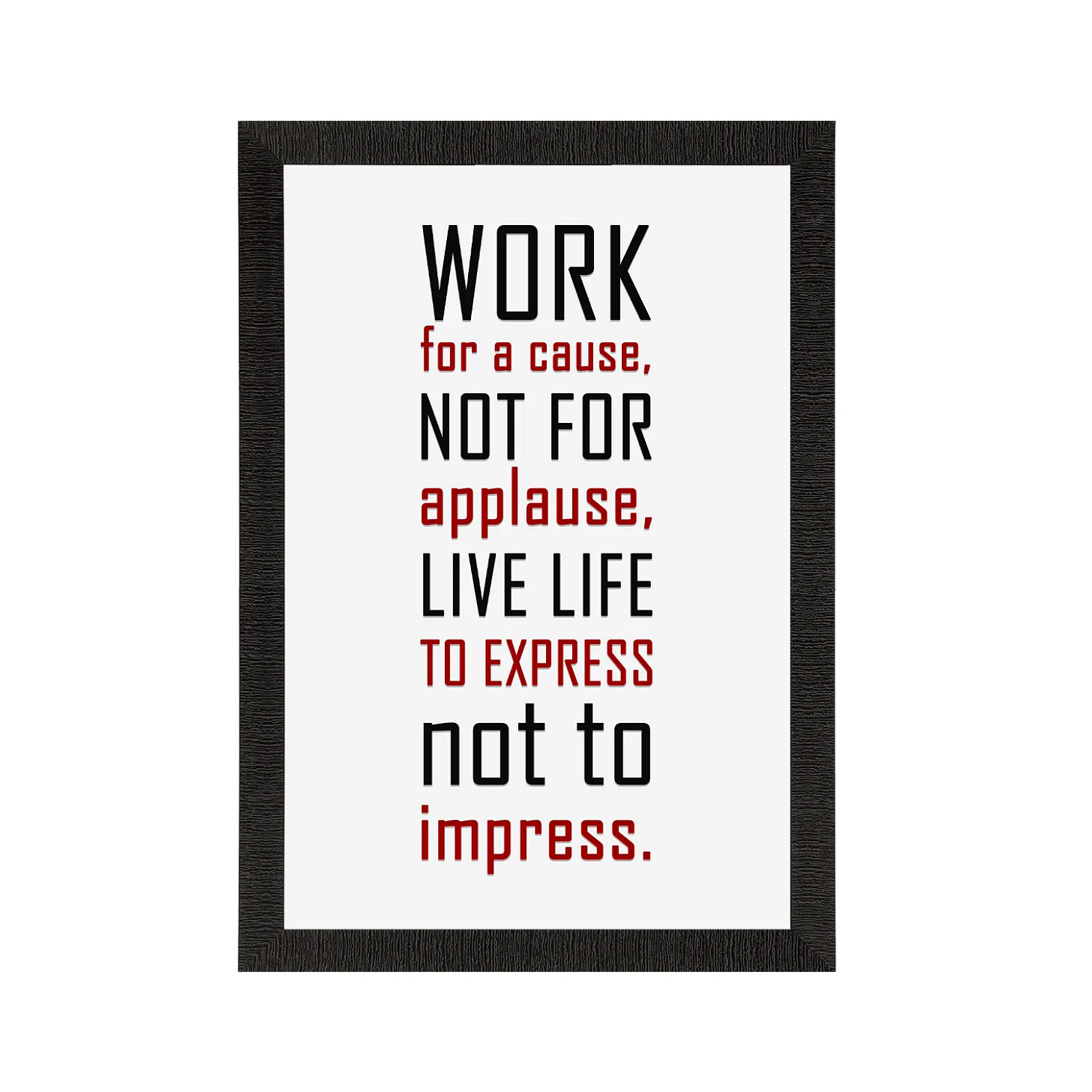Applause
I recently attended opening ceremony of a college function as the Chief Guest. It began with a classical singing performance. One of the students was singing & the other one was on Tabla.
Within the first 60 seconds, the audience could understand that this singer had some special talent. Generally, during such classical performances, I see most of the audience immediately gets bored and starts pulling out their mobiles.
But this time, it was different. He was completely immersed in the song while most of us were fully ‘present’, simply mesmerized by his talent.
…and suddenly the Electricity went off.
The mike, which was amplifying the performance, stopped functioning. The atmosphere instantly changed as everyone realized the eventual fate of this performance.
But he & his partner were completely unaware of their surroundings …
Without missing a single beat, both continued performing with same passion & energy. Luckily, I was in the first row (Chief Guest 😊). So I was able to listen to him more clearly than others. Despite my very limited knowledge of classical singing, it was certainly a treat for my ears.
The Electricity came back towards the end of his performance, but the audience was still hooked throughout.
Like all programs, he would anyways have got customary applause at the end but this time it was a standing ovation.
The applause for his passion & commitment. Afterall, he was not singing just for getting few claps from the crowd.
Some years back, I was conducting a technical session in a college (as part of my volunteering activities). Right from the start, I realized that a specific set of students in the class was not keen on what I was teaching. Like typical backbenchers, they would create some mischief occasionally. As a result, I started losing concentration & enjoyment in teaching.
Since I had no prior experience of being in a full-time teaching role, my ideas about dealing with such nuisance were limited. Finally, out of frustration, I decided to wind up my lecture 10-15 min before the schedule.
While I was leaving the college later that day, one student approached me & apologized on behalf of his class. He felt that the information I was giving them was quite useful for their future, but because of some stupid students, others lost out.
That was an eye opener for me.
Till that time, my idea of a successful session was getting 100% attention from ‘all’ students in the class. Whenever that was not happening, I used to lose interest & wind up the sessions faster.
In short, I was trying to get external validation of effectiveness of my lecture & was becoming disappointed whenever it was not up to the mark (thinking that as a speaker and teacher, I was failing).
External validation is a tricky topic. It is helpful to get positive opinions about ourselves from others at the beginning.
Afterall, who doesn’t like applauses?
But if one starts frequently changing according to how people react, then it becomes difficult to sustain motivation for longer term.
The moment external feedback starts dominating our inner voice, our performance starts faltering. Performance need not be limited to activities like singing or dancing. It can be anything & everything in our daily life → doing our job, talking with customers, presenting in a Business Review meeting, driving car, cooking, exercising, etc.
Frequent cravings for external validation can ruin our self-confidence over time.
These days, I am reading a wonderful book called ‘Tribe of Mentors’ by author Tim Ferris. It is a thoughtful compilation of answers to a list of questions asked by him to various well-known people from different walks of life.
One of the contributors is a popular blogger named Tim Urban. When asked about what bad advices he has got in the field of writing, he mentions that the number one bad advice centers around doing everything for trying to ‘win’ your readers.
People often advised him about writing that could ‘suit’ a specific set of audience. He decided otherwise. He consciously focused on writing on the topics which would interest & satisfy him in the first place.
Slowly but surely, it worked well for him.
He outlines his philosophy wonderfully in the book.
Instead of the usual run-of-the-mill way of trying to please a specific set of readers, he created special audience for him by focusing on listening to his inner voice.
This is probably the best example of how inside-out works better than constantly seeking external validation.
It was heartening to see that, the college student-cum-budding classical singer has realized this so early in his life.





